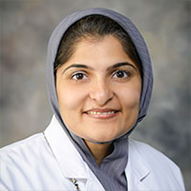Dallas
214-456-5959
Fax: 214-456-5963
Plano
469-303-2400
Fax: 469-303-2407
Park Cities
469-488-7000
Fax: 469-488-7001
Pediatric hypoparathyroidism is when a child’s parathyroid glands produce too much of the parathyroid hormone, resulting in high levels of calcium in the body.
214-456-5959
Fax: 214-456-5963
469-303-2400
Fax: 469-303-2407
469-488-7000
Fax: 469-488-7001
The parathyroid gland is made up of four tiny glands located just behind the thyroid in the neck. The parathyroid hormone controls the body’s calcium, phosphorous and Vitamin D levels. When the calcium level in a child’s body drops, the parathyroid gland releases the parathyroid hormone. Once the calcium levels have returned to normal in the bloodstream, the parathyroid glands should be signaled to stop producing the hormone.
In hypoparathyroidism, the parathyroid glands don’t receive the signal and continue to produce the hormone, which in turn creates high levels of calcium in the child’s body. Consistently high levels of calcium can have an impact on the child’s metabolism, kidneys and bones.
Hypoparathyroidism is typically diagnosed before the child begins experiencing symptoms; however, symptoms can include:
The first step in diagnosing hypoparathyroidism is taking a medical history. Your child’s doctor will ask about symptoms such as cramps or tingling in the hands and feet, or twitching of the muscles of the face. She will also ask about any recent surgeries that may have involved the head and neck.
Hypoparathyroidism can be caused by certain medical conditions that result in low blood calcium, including:
The treatment of hypoparathyroidism differs from the treatment of similar diseases of the endocrine glands. The goal is to restore calcium, magnesium and phosphorous levels to normal. At present, there is no approved replacement for the hormone itself.
The only therapies currently approved for use are synthetic forms of vitamin D and calcium, in addition to taking calcium and magnesium supplements. Some children may be encouraged to eat foods that are high in calcium such as dairy, breakfast cereals, fortified orange juice or leafy green vegetables. They also should avoid foods and beverages that are high in phosphorous, such as carbonated soft drinks, eggs and meat.
The physician treating your child will keep a close eye on the levels of calcium and phosphorous in the blood during the early stages. After the proper balance has been restored, the tests will be done less often.








